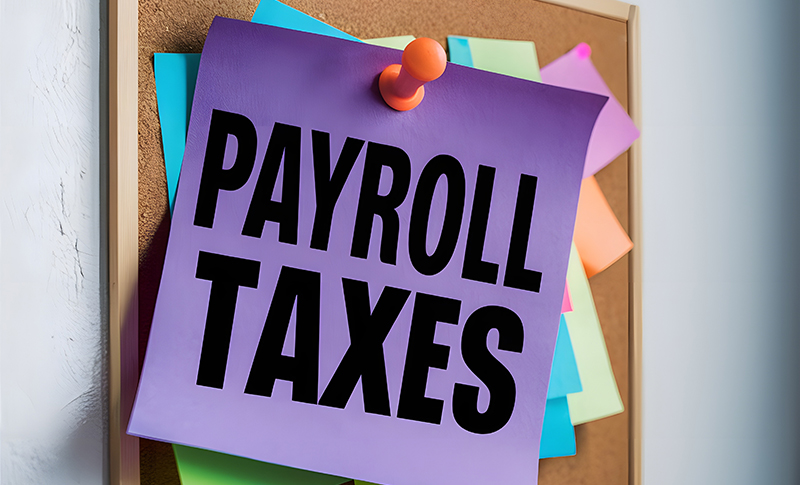Can you file taxes if you are being audited?
May, 14 2021 by Jean Lee Scherkey, EA
Can you file taxes if your previous year’s return is still being audited?
-Amanda
Dear Amanda,
We may not like to admit it, but most of us appreciate a sense of order. We want to know that if we follow steps in a specific order, we will enjoy the fruits of our labor, whether it be a dark chocolate brownie hot out of the oven or a piece of Swedish furniture to fill the empty space in the living room. Forgo the sweetener, and you are left with a bitter taste. Forget a few screws when building a coffee table, and you may still end up with a conversation piece, but it may not generate the comments you were imagining. We have that same need for order when we file our income tax returns. Knowing our prior-year return is in our rearview mirror makes delving into preparing the current year's return more manageable. So, what do you do if the clock is ticking to submit your 2020 income tax return and dear Uncle Sam is doing a tip-to-tail review of your 2019 return?
In general, yes, you can file your current taxes even if your prior-year return is being audited. No tax rule or regulation says a current return cannot be filed if the prior return is under audit. But, just like those glass slippers Cinderella wore to the ball, there is no one size fits all answer to this question. There are situations where waiting to file a current return until the audit of the prior year's return concludes may be beneficial. Often, it depends on what is being audited and if any determinations the tax agency makes on the prior year's return will impact the current year's return.
There are several ways a prior-year return can impact the bottom line of a taxpayer's current year return. Some examples include the following:
- Capital losses from the sale of stock, collectibles, or other property such as cryptocurrency: The IRS may adjust the sales price, the purchase price, or the tax rate of a sold investment, changing the capital loss carryover to the next tax year.
- Net operating losses: The IRS may disallow a net operating loss the taxpayer claimed on their prior return, changing the net operating loss carryover.
- Claiming a dependent: A taxpayer claims another person as a dependent, but it is determined in the audit that the dependent does not qualify as a dependent of the taxpayer. This can be a costly mistake as the taxpayer may have to repay any credits they received because they claimed a child as their qualifying child, including the Child Tax Credit, Child and Dependent Care Expense Credit, and Earned Income Tax Credit. Additionally, depending on the circumstances, the child may not qualify for the Other Dependent Credit.
- Depreciation on assets and real estate property that is allowed or allowable: You decide not to claim, or forget to claim, the depreciation deduction on your rental property, so you do not have to recapture the depreciation deduction when the property is sold. Then you find out that even if you do not claim the deduction, you will have to recapture the allowable depreciation when you sell.
- Disallowed expenses claimed on a rental property or sole proprietorship activity: The IRS disallows certain meal expenses you thought were deductible and planned to deduct again in the current year.
- Claiming the wrong filing status: A taxpayer using the filing status "Single" when married.
Let's take a closer look at an example from the list above.
Generally, taxpayers are limited to an annual maximum capital loss deduction of $3,000 on their income tax return. Any excess losses are carried over to the following year and can be used to offset any reportable capital gains. Here is an example.
Barry was bit by the cryptocurrency craze, and in 2019 bought, sold, and converted a bevy of various cryptocurrencies on Coinbase. When Barry prepared his 2019 return, he calculated a net loss from his cryptocurrency transactions of $25,000. Barry claimed a $3,000 capital loss on his 2019 return and carried forward the remaining $22,000 net capital loss to his 2020 individual income tax return. In February 2021, Barry received notification that the IRS is auditing his 2019 cryptocurrency transactions.
In 2020, Barry sold a piece of vacant land at a $20,000 gain and was looking forward to offsetting the gain on the sale with the $22,000 capital loss carryover from 2019. Being an optimistic fellow, Barry decided to file his 2020 income tax return before the IRS completed the audit on his 2019 return, and used the capital loss carryforward to wipe out the gain from the sale of the land. This gave Barry a bountiful refund that he will use to go blueberry picking in Michigan later in the year.
Alas, Barry's blueberry bonanza burst, and the IRS determined he did not have a net loss of $25,000 on his 2019 cryptocurrency transactions, but a $5,000 loss, leaving a 2020 capital loss carryover for 2020 of $2,000. Instead of a refund, Barry now owes the IRS for 2020.
There are many reasons you may not be able to wait until the audit of a prior year's return has been completed to file your current year's return. Maybe your child needs the information from your return for Federal Student Aid (FAFSA) purposes, or you are trying to qualify for financing to purchase a new home. If you are under audit and cannot wait to file your current year's return until the audit closes, it is acceptable to submit the return. Just be mindful that you may have to amend the current year return down the road for any adjustments made from the prior year audit that impact the current year.
Wishing you a successful audit and many happy returns,
Jean





